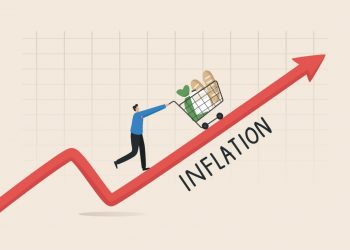I recently had the opportunity to participate as a panelist at RISMedia’s CEO Exchange, one of the best venues for hearing the thoughts and concerns of 200-plus real estate industry leaders. Among the many topics discussed, two critical and overlapping challenges caught my attention. How do brokers:
- Help their agents be more productive?
- Create incentives for agents to stick around?
From my perspective, brokers can tackle both agent productivity and retention with one not-so-secret weapon: training. Many of the leaders in attendance at the CEO Exchange shared this view. It’s an approach that produces win-win results.
Identifying Gaps
Typically, the first step is determining skill gaps. Beyond the initial onboarding process of introducing new agents to office forms and procedures, you want to assess how an agent shines—and what skills may need extra attention.
Evaluating an agent’s strengths and weaknesses, however, isn’t limited to your newest talent. In fact, seasoned agents may be tempted to assume an “I’ve got this” attitude and be more vulnerable to blind spots.
Priorities
Brokers typically have three top priorities: selling skills, industry knowledge and technology proficiency. During a new agent interview, for example, your thoughts might run along one of these lines:
She has a great sales background but isn’t very tech-savvy.
He’s brilliant about technology but lacks knowledge about the real estate industry.
She understands real estate but doesn’t have much hands-on sales experience.
While sales, technology and real estate skills may be at the top of the list, brokers may also need to fill other gaps, such as adding a dedicated buyer’s agent to a team or boosting your brokerage’s presence in a particular niche market.
Choosing the Best Training Tools
For training to generate meaningful and measurable results, it must deliver more than valuable information. Best-in-class education also compels agents to internalize new concepts and adopt new behaviors.
While change is essential, don’t expect overnight miracles. Look for programs that include follow-up components that will help reinforce new skills.
Retention Factors
The best training programs help agents be more effective by learning, employing and retaining new and valuable knowledge. Training also helps brokers retain agents by demonstrating their long-term commitment to the success of their agent roster.
Support From NAR
For decades, the National Association of REALTORS® (NAR) has encouraged agents to pursue continuing education in various ways. NAR’s designation and certification programs are designed to help members build competence in numerous specialized areas.
I’m also eagerly anticipating the debut of NAR’s new Commitment to Excellence (C2EX) program, in conjunction with the annual REALTORS® Conference & Expo this November. C2EX is a revolutionary initiative that’ll help REALTORS® identify and close their personal skills gaps, bringing a higher standard of professionalism to the industry and the best possible service to consumers. It’s also an exceptional tool for brokers, greatly simplifying the process of identifying gaps and supplying vital agent training.
 Marc D. Gould is senior vice president of Member Development for NAR, overseeing a wide range of professional development programs for REALTORS®, including the Real Estate Buyer’s Agent Council (REBAC). REBAC is the world’s largest association of real estate professionals focusing specifically on representing the real estate buyer. With more than 30,000 active members, REBAC awards the Accredited Buyer’s Representative (ABR®) designation to REALTORS® who have completed the specialized education and documented experience in working with consumers purchasing a home. To learn more, please visit REBAC.net.
Marc D. Gould is senior vice president of Member Development for NAR, overseeing a wide range of professional development programs for REALTORS®, including the Real Estate Buyer’s Agent Council (REBAC). REBAC is the world’s largest association of real estate professionals focusing specifically on representing the real estate buyer. With more than 30,000 active members, REBAC awards the Accredited Buyer’s Representative (ABR®) designation to REALTORS® who have completed the specialized education and documented experience in working with consumers purchasing a home. To learn more, please visit REBAC.net.
For the latest real estate news and trends, bookmark RISMedia.com.











